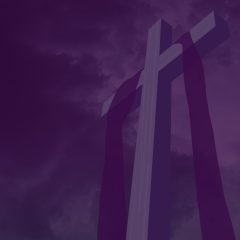February 29
Rev. Bruce Modahl
He is mindful of his covenant forever, of the word that he commanded, for a thousand generations.
Psalm 105:8
A college Old Testament professor used the word covenant so many times that his class named him Covenant. The nickname stuck to him from class to class, from one generation to another. The word covenant litters the Old Testament; it would be impossible to teach the subject without repeating the word over and over. He was a faithful teacher. He kept covenant with God and with his students.
Every word in Hebrew is rooted in a verb. As often as the noun covenant appears in the Old Testament, the verbal form “to covenant” never does. From other ancient sources, we know the verb means “to select the best.” But it can also mean “to bind.” I may be playing fast and loose with the grammar, but not so with the theology when I say God selects the best for us when God binds himself to us.
God bound himself to the people of Israel and they to him. The writer of Psalm 105 recounts the times in the history of God’s people when there seemed to be no way forward, but God made a way for them. The God of the covenant makes a way out of no way. That’s how the preachers in one mighty tradition of Christian preaching put it.
The incarnation is the chief way by which God binds himself to us. God in Christ takes on our flesh, our sin, our idolatry, and our death. He establishes a new covenant in his blood, shed for us and for all people. The grave is the last and greatest enemy. By Jesus’ resurrection, he makes for us a way out of the grave’s no way.
God binds himself to us at our baptism. God renews the covenant with us at the Lord’s Supper and as the gospel is preached to us and into us. In this covenant, God gives us all of Christ’s benefits to use in our lives and for the sake of others.
Heavenly Father, make us faithful stewards of the covenant you have made with us. We pray in the name of Jesus, your dear Son and our Lord. Amen.
